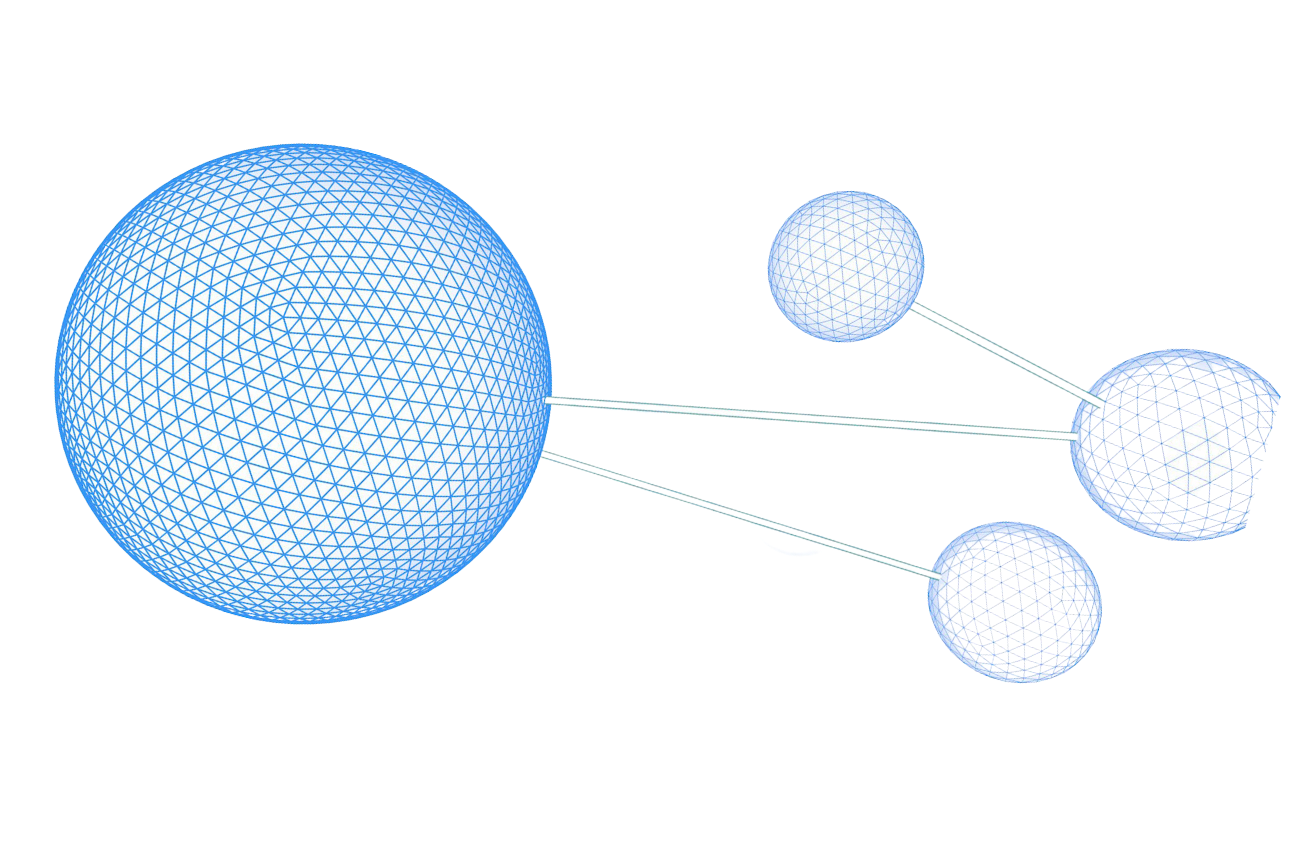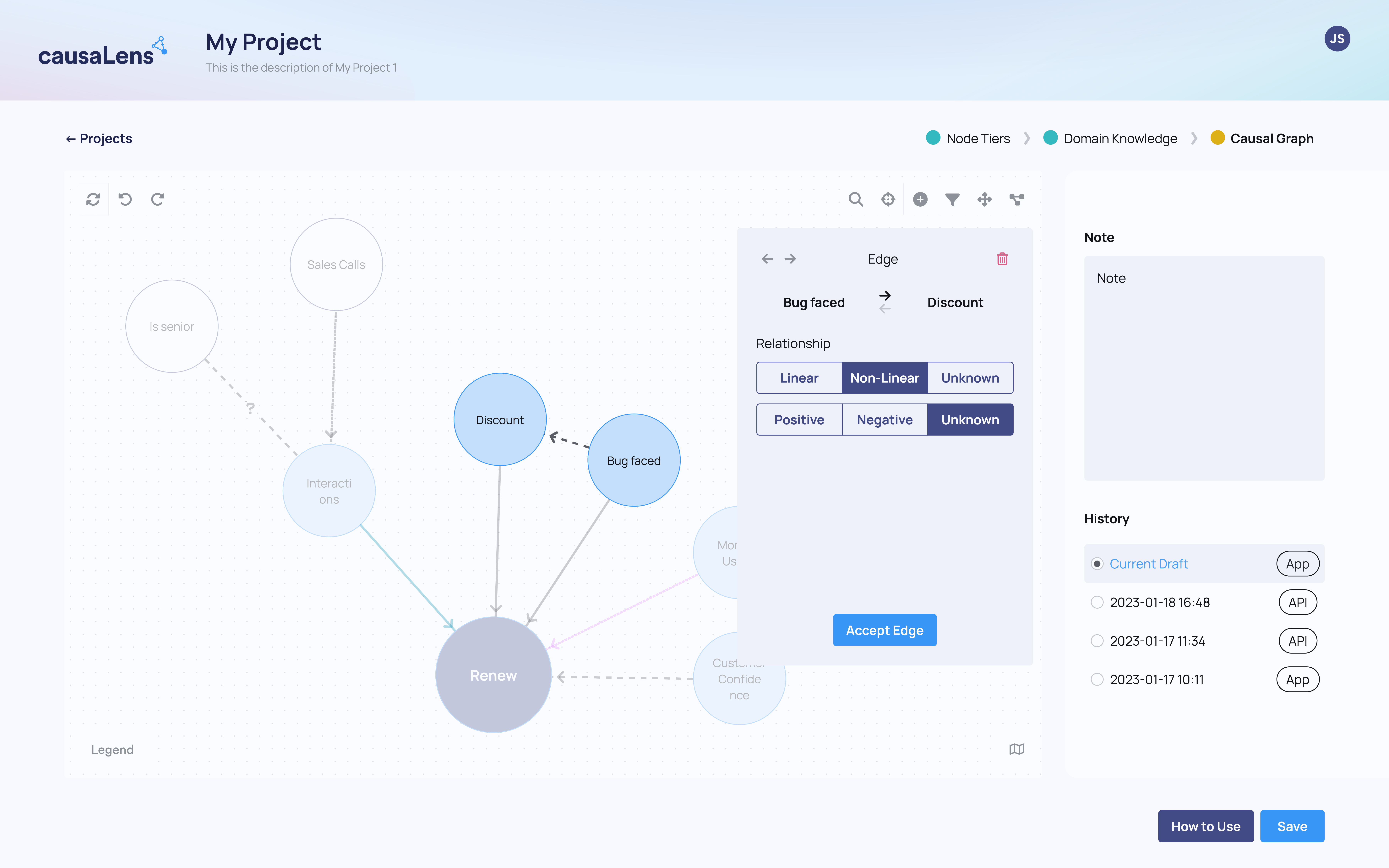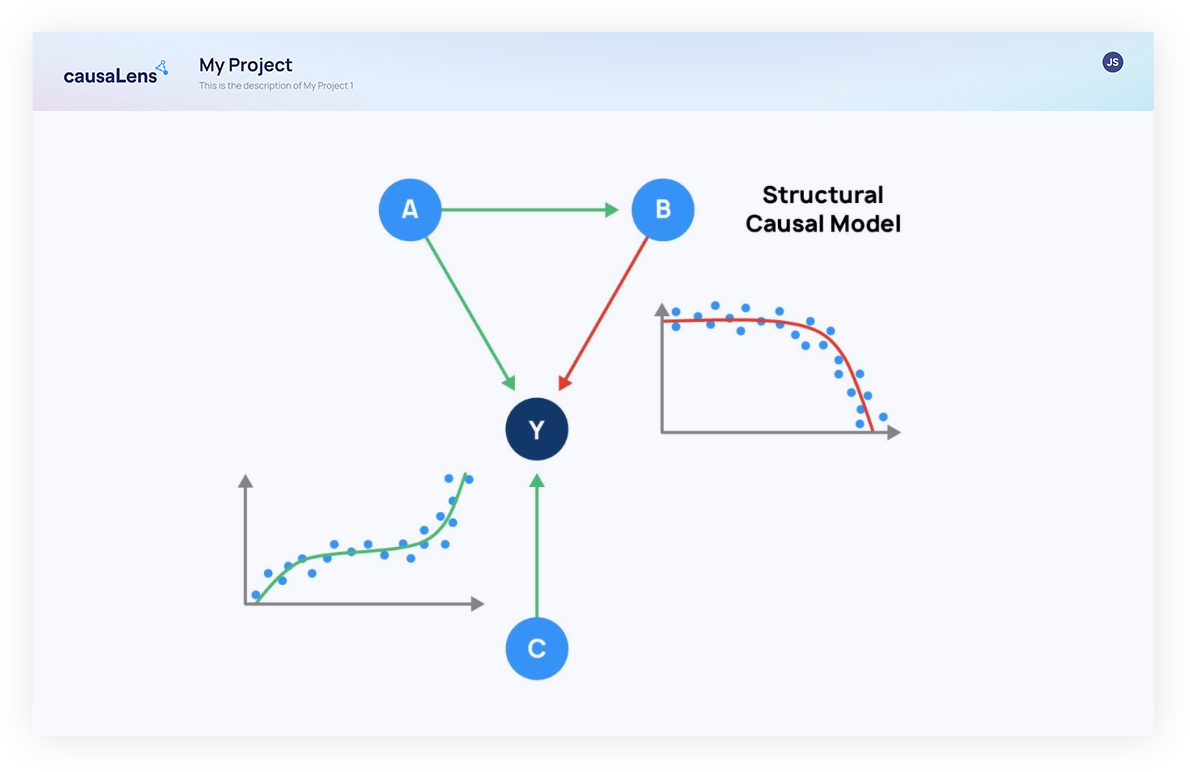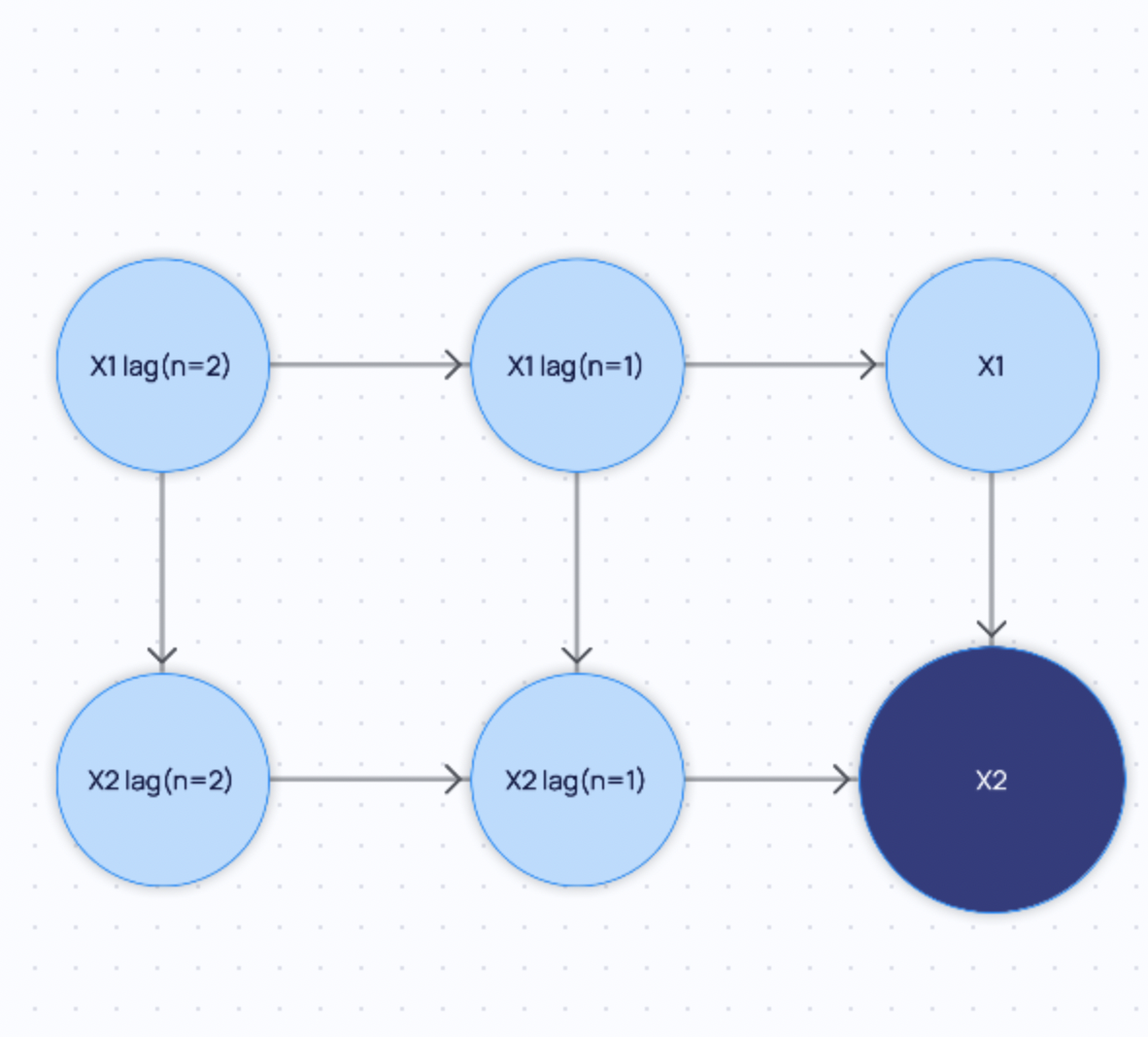Discover cause and effect to drive better decision-making.
Access a state-of-the-art Causal AI toolbox allowing you to answer the toughest business questions in a trusted and explainable way.
Collaborate to learn your causal graph.
Collaboration is key to developing an accurate representation of the cause and effect relationships within your data. decisionOS provides you with a range of causal discovery algorithms to learn your causal graph from data. decisionOS then provides a simplified user interface for domain experts to add, edit, and review causal relationships. This allows for a rapid and iterative discovery making use of both state of the art algorithms and deep domain expertise.
Build trusted models.
Many machine learning initiatives fail due to a lack of trust. decisionOS builds trust using white-box causal models which can be readily explained: allowing you to drive to the “why” of model outcomes. Constraints placed on models act as guardrails to prevent unexpected behaviors, while human expertise enforces models which better capture real world phenomena.
Leverage our doubleML package to build robust causal models – learn more.

Translate model output into quantitative, actionable recommendations.
Causal models enable interventions and counterfactuals to be calculated. These allow you to answer “why” and “what-if” questions about business critical scenarios.
Decision Intelligence Engines use interventions and counterfactuals to translate model output to quantitative, actionable recommendations.
-
Causal Effects
Quantify how interventions impact different groups within your data.
-
Decision Optimization
Discover optimal interventions for a given objective.
-
Causal Fairness & Bias
Determine how discrimination can occur within your data as you perform interventions and actions.
-
Root Cause Analysis
Understand the underlying reasons for why certain outcomes occur.
Leverage Causal AI packages built specifically for time-series
Our platform helps data scientists efficiently address the nuances of working with time-series data across the modeling pipeline including:
- Causal Feature Engineering for discarding spurious correlations within raw, stationarized & transformed features
- Causal Discovery Algorithms that are designed specifically for time-series
- Time Series Causal Graph Viewer & Editor
- Do-Calculus in a time-series setting for accurate estimation of interventions & counterfactuals
- Synthetic controls for attribution of causal effects of an intervention over time
- Root Cause Analysis that takes temporal causation into account
Causal AI Features
-
Expansive Causal Ecosystem
-
Open Source Integrations
-
Self Service Development
-
SOC2 & HIPAA Data Protection
-
Scalable Kubernetes Compute
-
Multi-Cloud Native
-
Pre-built Templates and Examples
-
Powerful Time Series Engine
Causal AI is Disruptive, Trusted Technology
Causal AI is a fundamental scientific breakthrough and causaLens’ vision for Causal AI extends far beyond decision making. causaLens has the potential to disrupt a vast range of sectors and industries and has already demonstrated the value of its Causal AI technology in biological applications such as the discovery of cancer biomarkers.
Nicholas Chia, Ph.D (Personal View), Associate Professor of Surgery

We contacted causaLens because many problems have different causes and require different treatments… [and] we were looking at causal models that can give us an optimized design with multi-cause, multi-treatment.
Antoine Bertoncello, Head of Next Gen AI

Frequently Asked Questions
Ways to get started
Talk to an AI Expert
Book a personalized demo to see our decision-making AI powered by Causal AI in action.
Get startedRequest Free Trial
Discover the power of Causal AI by requesting a free trial of decisionOS.
Get startedResources
Read our white papers, case studies, and research to gain new understanding in the world of Causality.
Get started




